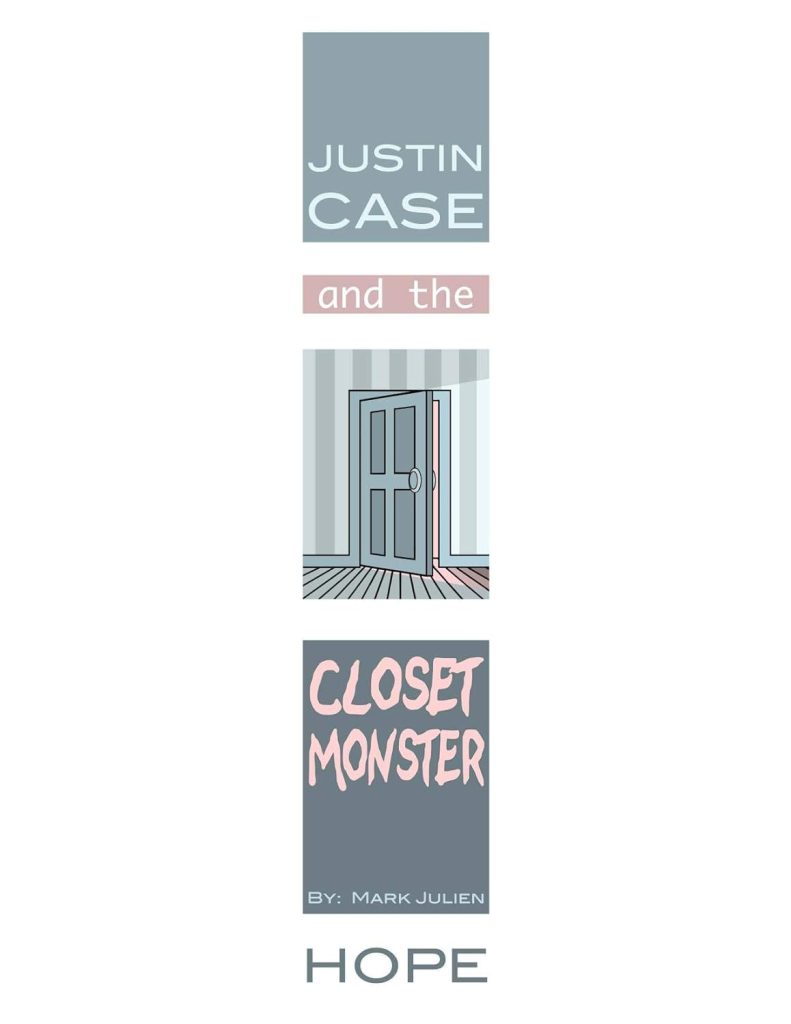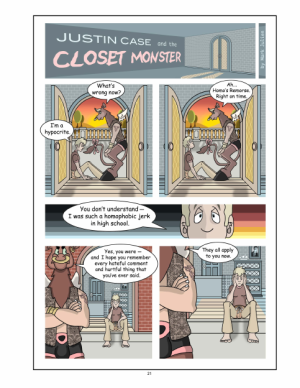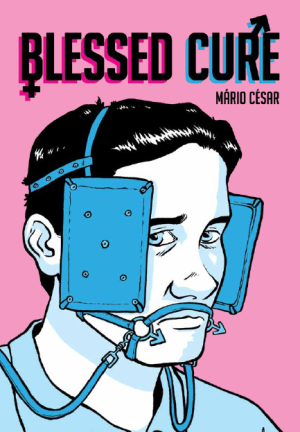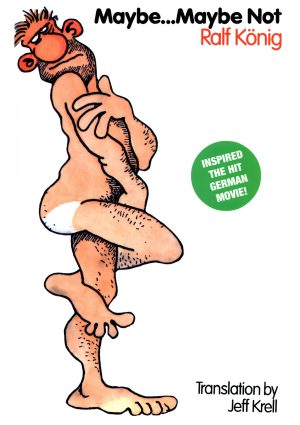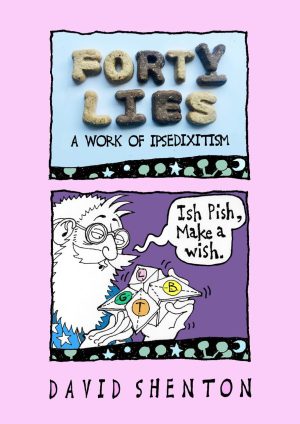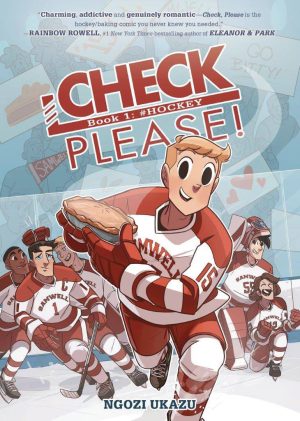Review by Frank Plowright
Justin is fooling himself, repressing what he is, but fortunately for him his closet is a portal to elsewhere and from elsewhere comes the odd looking, mythological creature seen in the sample art. In denying the truth Justin uses assorted tactics such as dating girls, insulting other gay men, and using the strictures of religion. As we see, though, the local priest wrestles with his own closet.
Mark Julien’s extensive introduction makes it clear that Justin Case and the Closet Monster is a catharsis for him, with the opening section having parallels of his own story of fears about coming out as a gay man in a small town during the 1990s. Once beyond that, Julien introduces a wide cast, which is problematical for a strip created in single pages for serialisation in a monthly magazine. At the start there’s some doubt as to whether Justin Case is a continuing story or a selection of gag strips. It’s actually both, but some weak page endings sow the doubt, and it’s an awkward compromise throughout, ensuring the strip remains largely superficial for too long when the possibility for greater depth exists.
Julien is a skilled cartoonist with a good sense of design, sourcing his monsters from mythology, transforming them into gay avatars, and charming with his digital illustrations of their friendlier forms. They’re set in ambitious backgrounds, with good use of colour to represent levels of suppression. The single darker tones at the start give way to far brighter surroundings. Justin is more reminiscent of a Howard Cruse character, all wide eyes and caution, while most others have a flamboyancy from the start.
It’s when Julien moves beyond the more personally derived material and opens up his world that Justin Case becomes stronger. The imaginative mythological creatures seem to take on a life of their own, but for a long time there are too many of them to focus on in strips completed a page at a time. It’s around two-thirds of the way through before Julien eventually realises this, and some are discarded to concentrate on a smaller cast.
Slightly before then the single page exclusivity has been broken to include scenes occupying several pages. It only goes to highlight how Justin Case could have been far stronger had the material been re-arranged as separate short stories concentrating on specific characters. It’s a shame because there’s a lot to enjoy here, not least the decorative cast illustrations ending the book, but the feeling is of Hope being the book Julien needed to create to come to terms with the form, and his next graphic novel will be stronger.
Not available via many online booksellers, you can buy direct at markjulienillustration.com.
